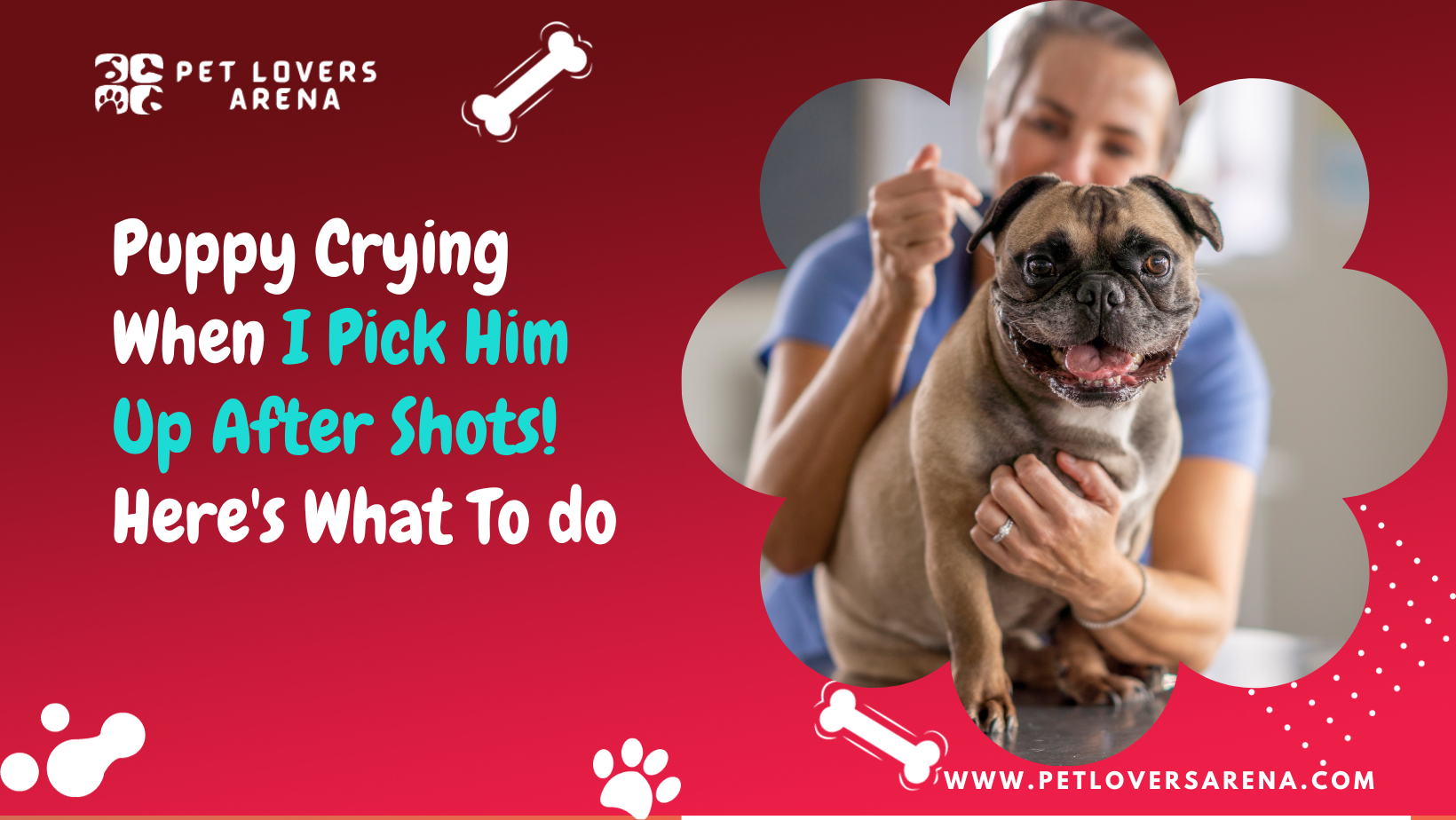Regular vaccination is a responsibility that every dog lover and the owner should take to heart. There can be no compromise when getting a dog vaccinated, especially their first vaccination shot. Vaccination shots in pups are crucial as newborns are highly receptive to diseases and have a weak immune system.
Without vaccines, it is pretty typical for a puppy to fall ill with one of the more deadly diseases like Canine Parvovirus, etc., which are easily preventable with vaccines.
Many different types of dog vaccines are there. And their primary goal is to boost the antibodies and actively strengthen the canine’s immune system. So, it is not rocket science as to why the vaccines for dogs are so crucial.
But while there is no question about the importance of dog vaccines, there is an issue of puppies crying after getting vaccinated. Search the web, and you will find several variations of the same question, ‘Why is my puppy crying when I pick him up after shots?
It is understandable for one to be nervous in such a situation, especially when one is unsure about its reason. It can be because of some allergic reaction or something else entirely. Who could see their little ones suffering from pain and wants to provide relief to them immediately?
And that is what we try to cover in this blog. Following is everything one needs to know about the yelping, the need for vaccination, and even how to assist the pup in their time of discomfort.
Puppy Yelping After Getting the Vaccination Shot? Here is What Everyone Needs To Know
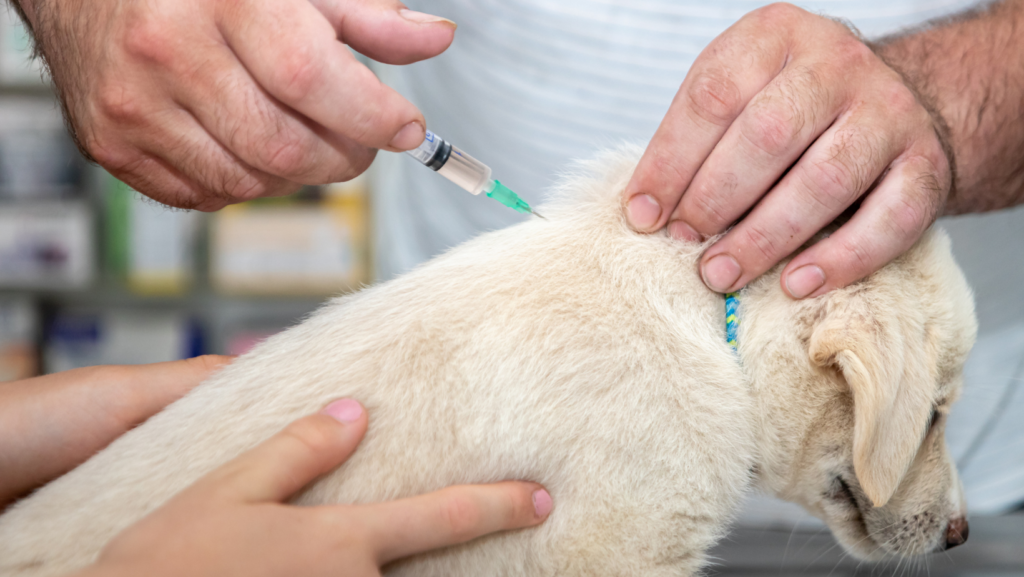
Many dog owners complain about their puppy yelping after vaccination. Usually, it is nothing serious. Your pup needs to get regular shots to avoid diseases like parainfluenza and rabies that could be life-threatening if one does not take the necessary precautions against them.
The best thing one can do about this situation is to prepare for any such possibility beforehand, as it is, in fact, quite common.
So, skipping the vaccination is not a wise choice as, in the long term, it could prove to have disastrous consequences. No vaccines for dogs are a must as they contain modified strains of viruses that boost the pup’s immune system by detecting the virus faster and empowering the system to fight and destroy them.
But while these vaccines are beneficial, they also produce adverse effects for a short period, like a fever that goes away within 24 to 48 hours. This reaction is primarily due to the body adjusting to the ingested vaccine and nothing more. But a slight fever is not the only side effect a pup can get with the vaccine. One needs to be on the lookout for other reactions, like vaccine allergic reactions.
Also Read: Dog Yelps When Picked Up Under Chest – Why And What To Do?
What is a Vaccine Allergic Reaction?
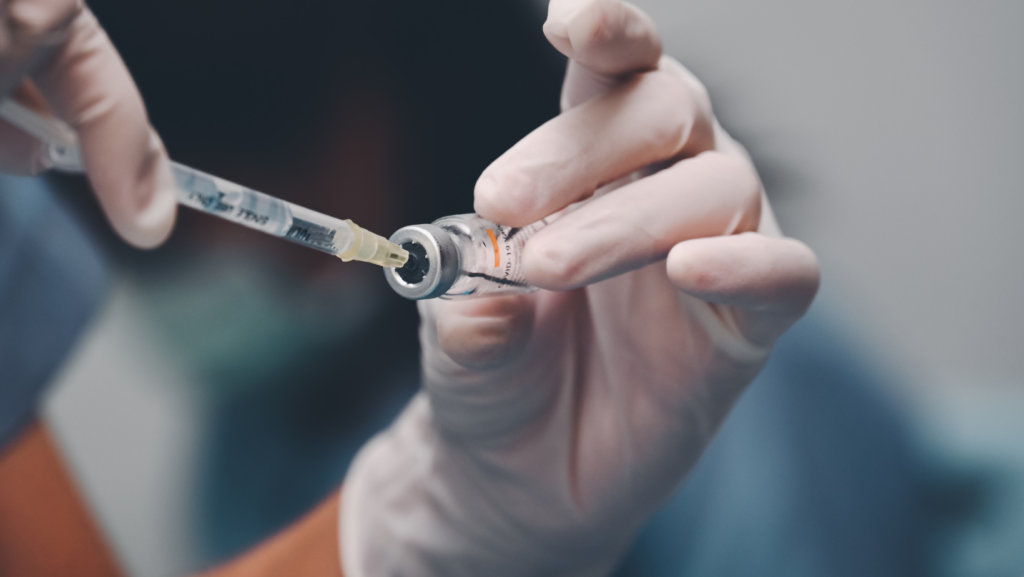
Vaccine allergic reaction is a generic term used to define all the unusual reactions that the body may exhibit due to the vaccine. They are also used to represent the end result of the body ‘exaggerating’ a vaccine shot.
It is pretty standard for puppies to show some minor negative effects because of the required vaccination, and typically these symptoms will end in a day or two, so there is nothing to worry about. But if you are still concerned, you can consult with your vet, and they will pretty much tell you the same.
However, remember that such minor symptoms should only stay with your pup for a day or so. In case of major symptoms and recurrence, make sure to immediately connect with your vet. It could be an onset of severe allergic reaction to the vaccine.
You can easily identify the allergic reaction around the injected area. If there is a noticeable redness to it, that is the case. Your pup would also become lethargic as the day goes by.
In such a situation, it is recommended that you connect with your vet immediately, even if the symptoms are not severe. Allergic reactions vary case by case, but they also worsen with time.
But What About the Puppies in Pain? Is it Common?
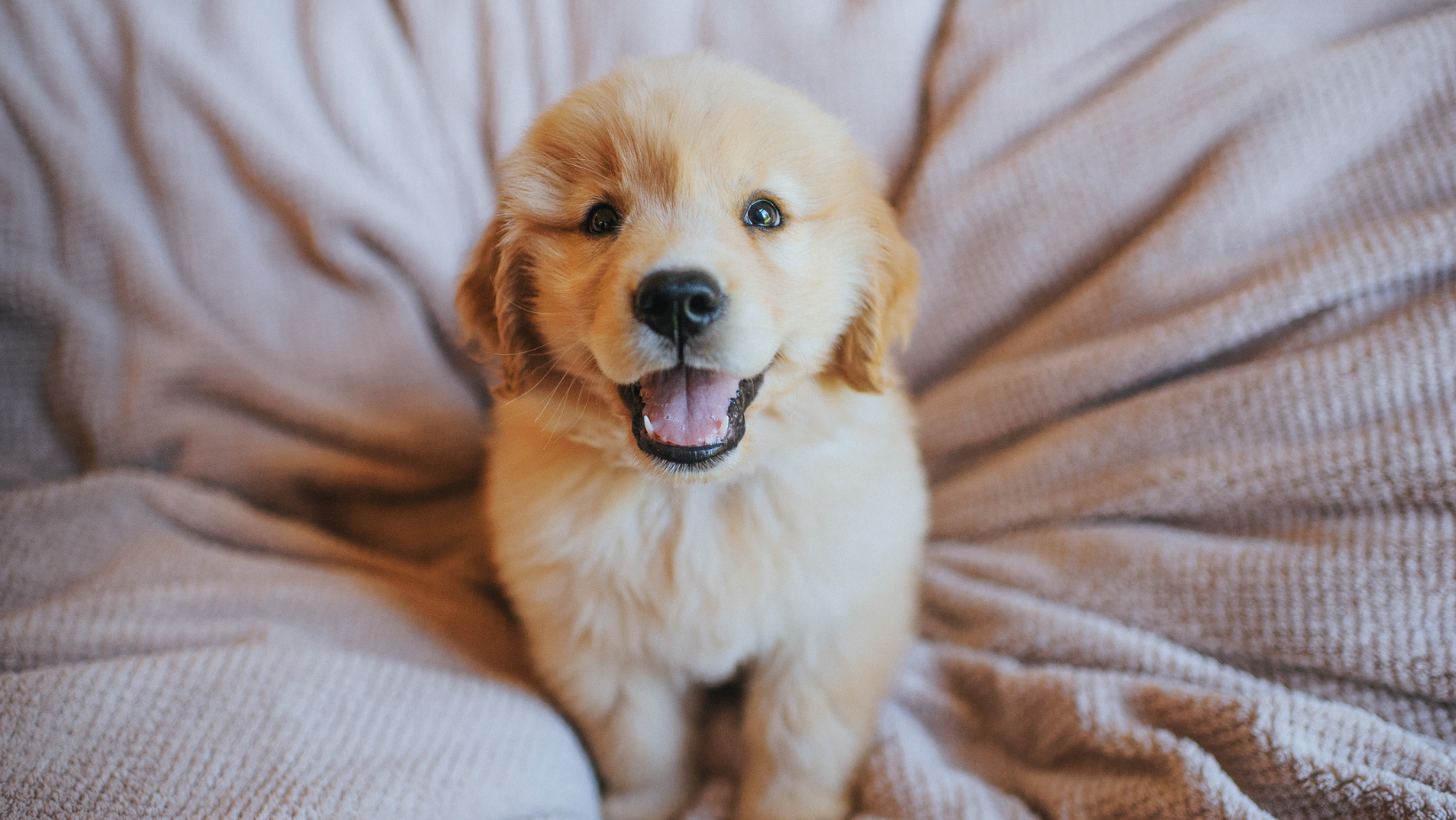
A little bit of discomfort is quite common for vaccinated dogs. And since your four-legged is in distress and do not understand the cause of it, they might choose to express this by yelping when one picks them up or even touching them for even a second. This might also result in low physical activity for a couple of days.
They would even do that when they are not feeling any kind of pain other than the stinging feeling that comes with an injection. The state of their mind is such that they would connect to any touch, no matter how soft, with that feeling. So, it is not a serious concern as it would fade away with time. Make your buddy comfortable for the time being, and this is the best thing you could do.
However, you should also lookout for any kind of negative effects. If there is anything other than yelping when touched, then it is very likely that the pup is experiencing an adverse allergic reaction and should be treated immediately.
Common Vaccine Reaction in Dogs
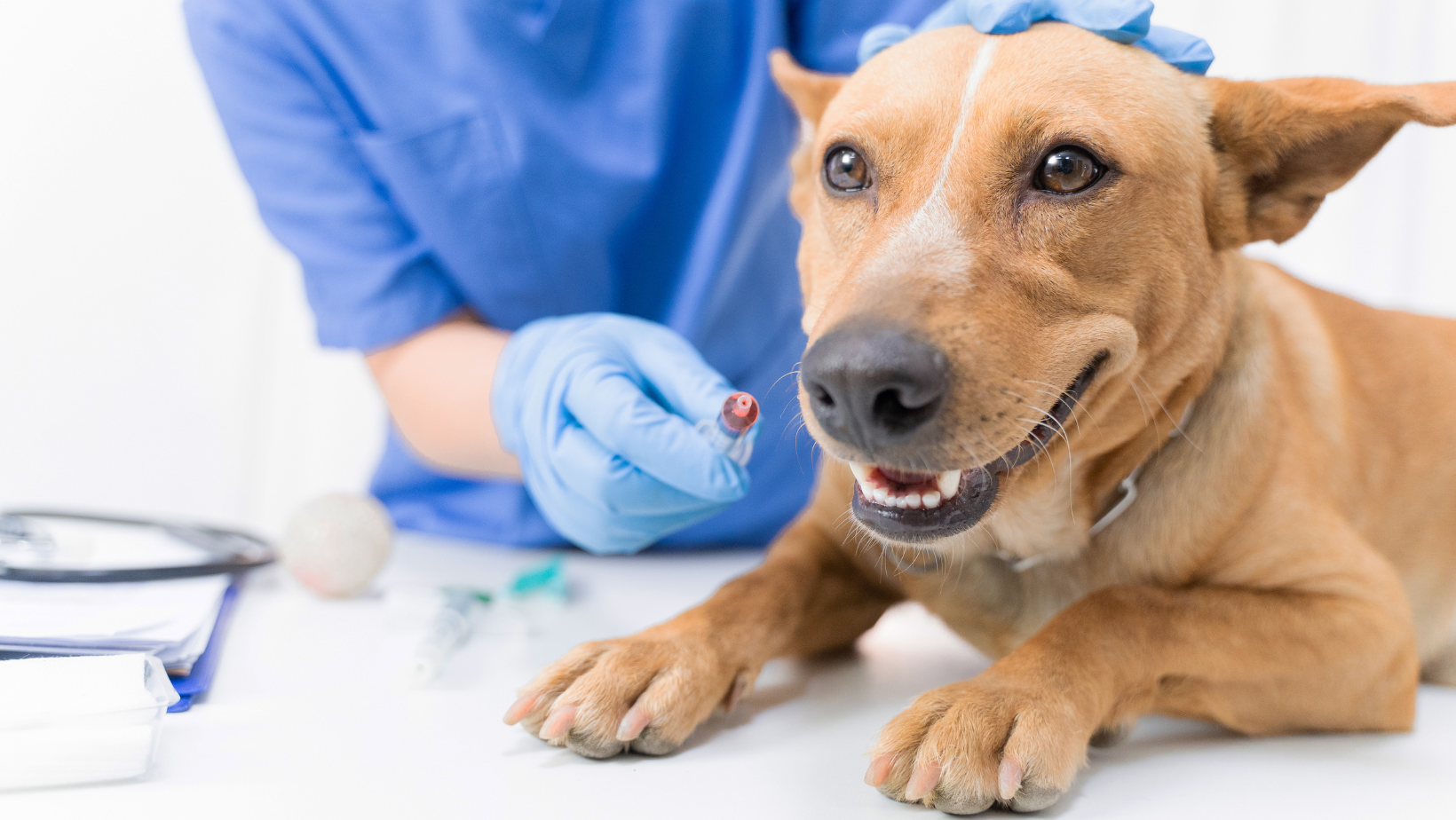
The vaccine reaction in dogs can be categorized into mild and severe. As the name suggests, Mild symptoms are short-lived and do not impact your pup’s health too much. They would require only a mild treatment and nothing more in most cases. On the other hand, a severe vaccine reaction needs immediate emergency help and possibly admittance to the vet hospital.
Examples of Mild vaccine reactions:
1. Sneezing and cold
The most common vaccine reactions in canines are sneezing and cold-like symptoms. It is pretty standard in the cases of dogs vaccinated with nose drops and sprays. Runny nose and cough are other similar symptoms. This reaction would go away in less than a day.
2. Lethargy
Another common reaction after getting the shot is lethargy. Your pup would be disinclined to do any physical activity and prefer to find a comfortable and relaxed spot and take a nap.
Mild fever also accompanies lethargy and would fade away without any medication or other treatment in a day or two. If this happens, you should connect with your vet urgently.
Examples of Severe vaccine reactions:
3. Anaphylaxis
While most of the allergic reactions to dog vaccines are pretty mild, there are rarer and more severe reactions that have been noted around the world. And one such reaction is anaphylaxis. It is a severe allergic reaction that comprises hives, vomiting, diarrhea, breathing difficulties, swelling, itchiness, etc.
This condition can happen anytime between when the vaccine is injected to the 48 hours after the vaccination. Connect with your vet immediately in all haste if your pup is experiencing one or more of these symptoms.
How Does the Vet Treat Vaccine Reaction?
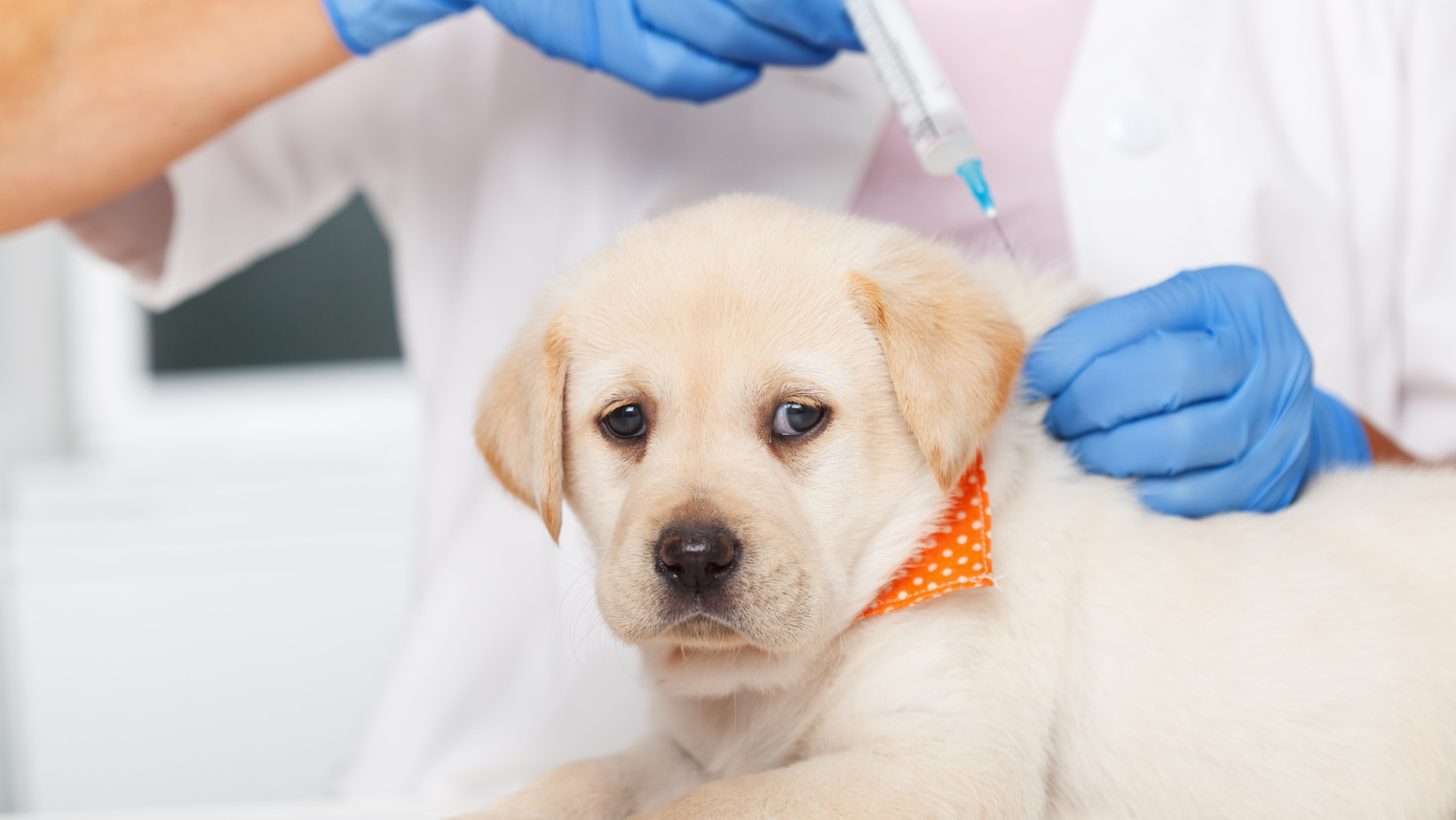
In case of mild reaction, the vet would use antihistamines and cortisone to treat the canine, but only in the case of reactions that are confined to the skin and are not life-threatening. A couple of shots for treatment would clear the issue quickly and safely.
In the case of a severe reaction, epinephrine is used to provide immediate relief in a life and death situation. It is an emergency treatment for slow heart rate, decreased blood pressure, and weakness. The vet will administer intravenous fluids and medications to help recover and restore vital signs in such circumstances.
With proper treatment, your pup will recover in no time.
How Long is it Common for Puppies to Experience Pain After their Vaccine Shot?
Tiredness, soreness, and even swelling are common after vaccine shots, not just in dogs but also among human beings. After the shots, the dog’s immune system is activated and builds antibodies to act against the foreign invaders (the modified virus in the vaccine shot).
In addition to this, puppies might also experience symptoms like mild cold and sneezing in the case of intranasal vaccination. All of these symptoms, including the yelping by the pup, might subside within a day or two.
Is it a Good Idea for One to Walk their Dog After the Vaccination?
It is a petty thoughtful question that many dog owners often ask. The answer to this solely depends on the condition of your pet. If your pup is getting vaccinated for the first time, it would be best to restrict their movement for at least two days.
The vet would encourage the dog not to move for at least a couple of minutes after getting the shot. You are encouraged to make them as short as possible and keep the pup on the paved roads even during the morning walks.
This is because you do not want to put too much pressure on the legs and joints after the vaccination shot. Better to avoid beaches and hard-to-walk areas for at least a couple of days. Pups that already have their second round of vaccinations can ignore these suggestions.
After 5 to 7 days, your canine companion is ready to go all out and have the time of their life. You should still take precautions like avoiding contact with unfamiliar pets, especially if the vaccination course is incomplete. Owners would still be advised to avoid making them walk too much, especially on the outside.
Read More: Why Does My Dog Keep Sitting Down Abruptly? [ 9 Possible Reasons]
Tips to Help Your Puppy in Case of Pain After Vaccination Shots
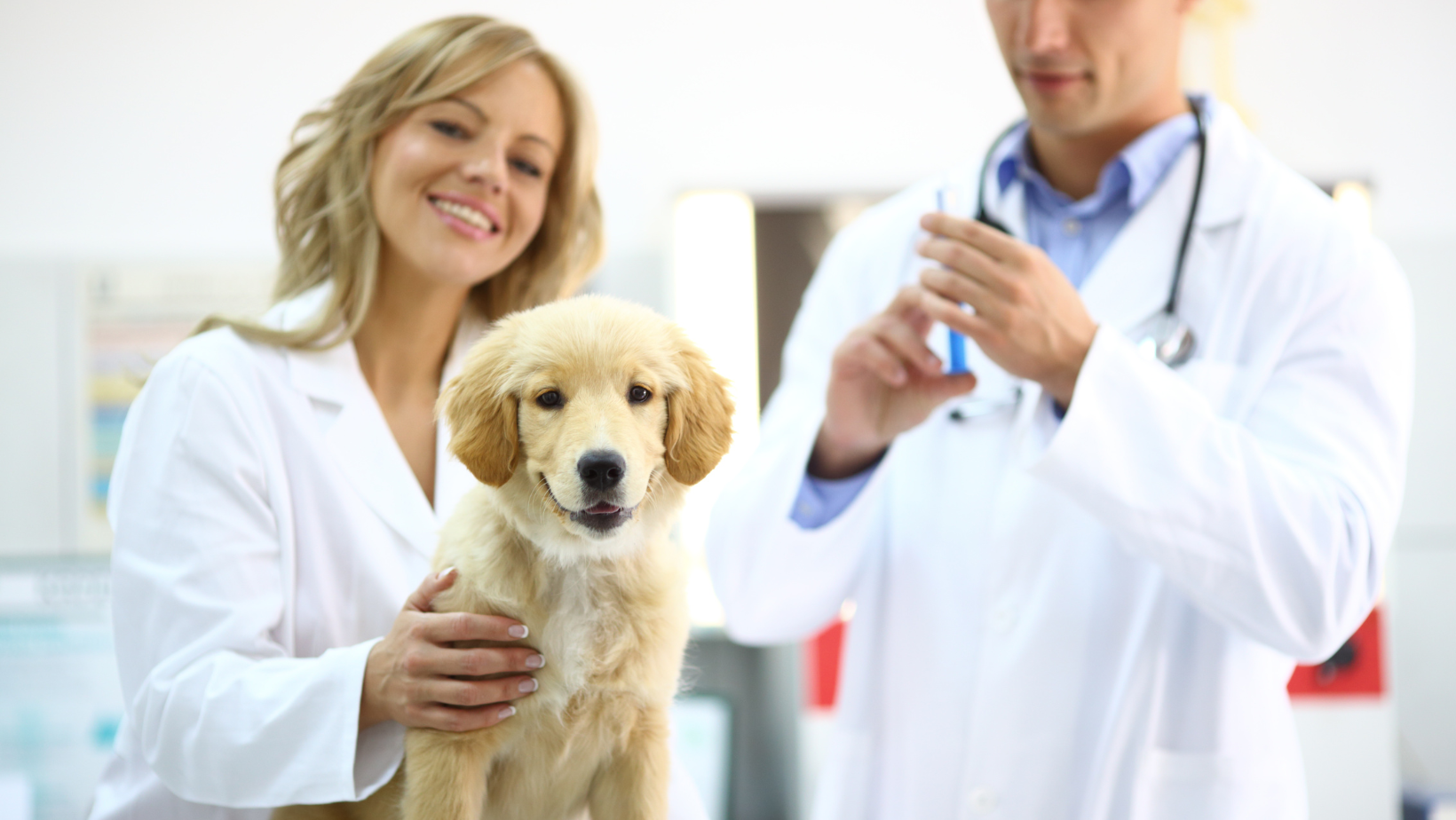
Many ways are there to help your pup when they are yelping in pain. The following are the established guidelines recommended by vets that can assist you in the process.
- Build a warm and comfortable spot for the puppy to lie down. Just let them simply sit in the place and relax. It is pretty common that puppies get a nap after being vaccinated. This warm place can certainly help with that. But do not try to force them to be there and let them roam around and find a better place to relax if they want.
- Make their favorite food available to chew on, with plenty of water in the range of their warm and comfortable spot. This would easily distract from the pain they are feeling, but do not be too concerned if they are not that interested in food at the moment. Just place their favorite meal and water and let them relax.
- DO NOT pat and try to play with the pet. It is very likely your puppy would like to stay alone. Make sure that children do not disturb the puppy as well if you want to have them. If your furry little pet wants to be petted and play with you, they will come to you themselves.
- Check on the pup every now and then. It is a bit of must-follow advice even when the canine is comfortable in their warm and relaxing bed. This way, you can keep a keen eye on whether or not your pup’s symptoms are worsening or not. Make sure you do not disturb them much when checking on them.
When Should One be Concerned About the Yelping?
Yelping is not really concerning if the pup does not show any other side effects common in vaccination allergic reactions. But if your pet is still feeling pain or yelping even after three days, then it would be wise of you to consult with your vet immediately.
Additionally, there are several other symptoms that you need to keep in check.
- Difficulty in breathing, even after not doing any strenuous activity
- Regular vomiting
- Diarrhea
- Weakness and lethargy
- Rashes
- Swelling on the face
- Loss of consciousness
These symptoms are pretty rare as they indicate serious allergic conditions. Your pet might require emergency care if you catch it with any of these symptoms.
What if My Puppy is Shaking After the Shots?
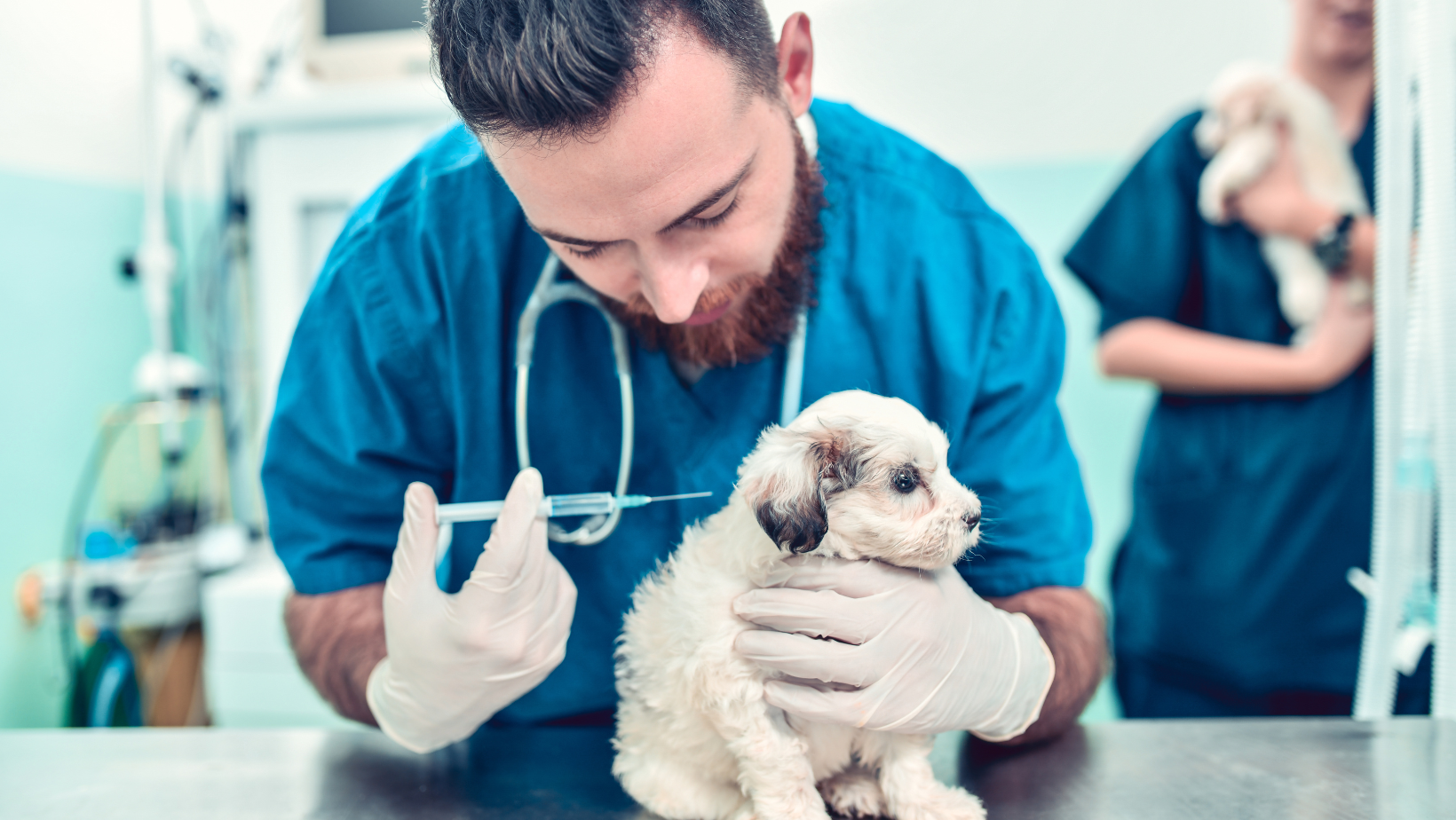
Just like yelping, shaking is one of those ways through which your pup might try to indicate to you that something is up. This is especially common when the puppy feels particularly yucky after getting its shots.
They would start shaking, drool, drop their ears and start cowering. These are pretty common body signals that a pet would send to its owner when they are in any kind of discomfort. But in all of the mentioned signals, shaking is the most common.
Shaking by a pup usually means that they feel some pain and discomfort in their bodies. A simple vaccination shot can quickly cause swelling and pain in the injected area, which generally causes shaking in pups. These shaking disappeared within 24 hours from the time of vaccination.
If your dog is not showing any serious symptoms like breathing trouble and vomiting, you need not concern yourself much. Just make sure that your buddy is completely comfortable. Follow the tips that are mentioned earlier to make your pet comfortable after their vaccination.
Is it a Smart Idea to Revaccinate My Dog After an Allergic Reaction?
It is possible for dogs to revisit the episode if they had a severe allergic reaction during their vaccination, but it is uncertain. The probability is high that your dog will not react to its second vaccination.
Similarly, it is also possible that a more serious and potentially fatal vaccine-induced reaction might occur. There is no way to confirm what might be the end result. So, it would be best to have an in-depth discussion with your vet about the risks, the benefits, and ways to mitigate such risks.
It would be best if you do not change your vet or go to another animal hospital between the vaccination doses as your existing vet would be more familiar with the case. If the vet deems the second dose of vaccine too dangerous, then it would be best if you follow their advice.
There are also cities and municipalities where it is compulsory for dogs to be completely vaccinated. It would be best to ask your vet to advocate on your behalf and send a statement stating that the second dose of vaccination could prove life-threatening to the animal in question.
How Can one Prevent Their Dog From Having an Allergic Reaction?
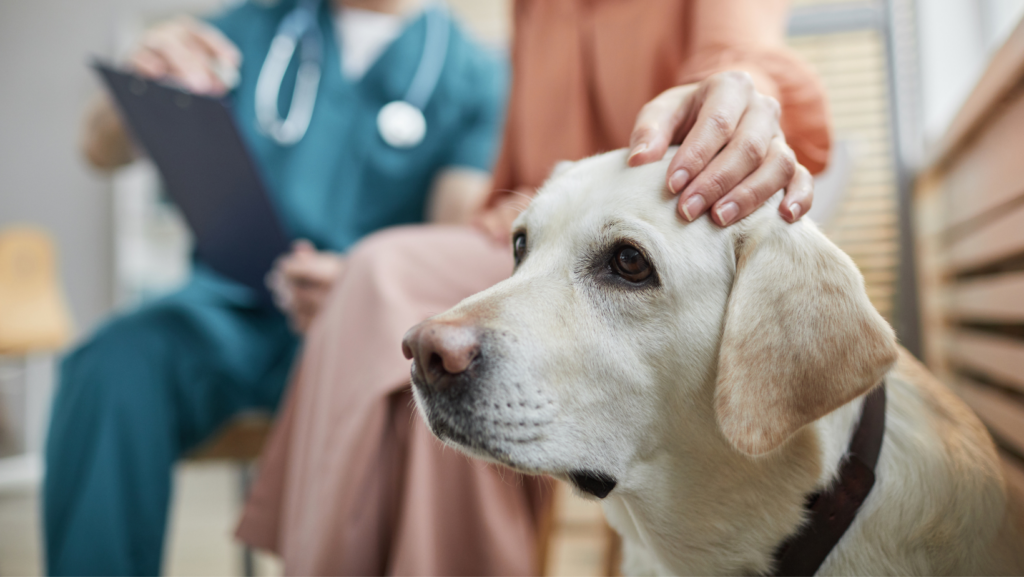
You need to keep in mind that the chances of your dog having an allergic reaction are extremely low. In fact, most dog vaccination cases go smoothly with no effect on the pup’s health.
But if your dog has already shown adverse reactions in their previous vaccination, then it is crucial that you make your vet aware of it. This is extremely helpful as it could help them look at the signs of allergic reaction more keenly. Additionally, the vet would be better prepared for the type of allergic reaction your pet has already shown before. Depending on your pup’s reaction, it is also possible that the vet might encourage you to skip certain vaccines that more than likely have caused a reaction.
In case multiple vaccination doses need to be administered, the vet would more than likely spread out the vaccine dates. This is because more vaccines increase the risk of adverse reactions in dogs. You might need to go to the vet a couple of times more than what is the standard procedure, but it is well worth it, as it mitigates the risk by a lot.
The vet would also ask you to keenly observe the dog for any allergy symptoms after every single dose, and if you find anything that might be the case, contact your vet immediately. Depending on the diagnosis, the vet might even cancel further vaccinations.
Summary
More often than not, a puppy crying after getting vaccinated is nothing serious. But if the problem persists even after a day or two, it is well-advised that one immediately reaches out to the vet.
Meet Madison Phillips, your compassionate guide to pet well-being. With experience from VCA Animal Hospitals and Laxton Vet Clinics Bellaire Inc. Madison honed her skills and embraced the balance of medical expertise and compassion, through her articles, she simplifies pet care, whether you’re a newbie or an experienced pet parent.

